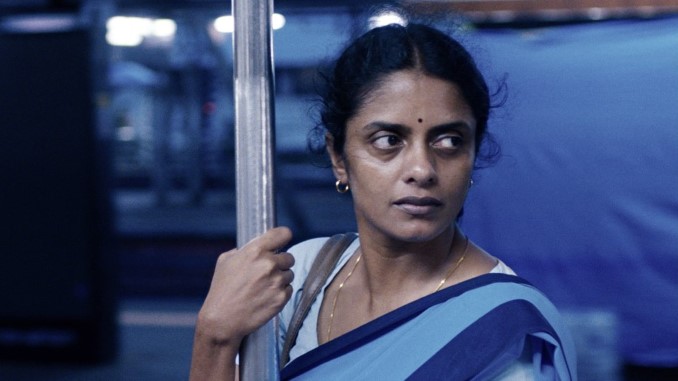All We Imagine as Light Is a Poetic Glimpse at Urban Dispossession in Modern Mumbai

In the city of Mumbai, one of India’s busiest and most populous cities, three women work at the same hospital. Prabha (Kani Kusruti) is the head nurse, and she shares an apartment with her junior colleague Anu (Divya Prabha) in the city. Parvaty (Chhaya Kadam) is a hospital cook, and leans on Prabha when her chawl becomes a target for demolition and she considers moving back to her village hundreds of miles down the Konkan coast. In fact, the three women are united in facing a private crisis: Prabha’s absent husband migrated to Germany for work shortly after they were married; Anu has to hide a relationship with her Muslim boyfriend Shiaz (Hridhu Haroon). They are all tethered to something that is not tangible, permissible, or permanent, and as the main characters in Payal Kapadia’s All We Imagine as Light, they are our female, Indian, and working class lens into the constant, murmuring instability that defines modern capitalist life.
Kapadia was born in Mumbai, and her first wholly fiction feature film debut paints internal urban dispossession as something clashing with the swelling, impassive cityscape. The pressures and conditions of living day to day amplify these women’s romantic and sororal tensions until, left with no other option, they each decide to create their own catharsis. Kapadia’s film is a precise, affecting, and sometimes spiritual journey through a discordant city symphony, imbued with an emotional verve that ranks it as one of the year’s finest dramas.
The film opens with voiceover extracts of Mumbaikars who struggled to find their place in the challenging city; this framing device primes us to notice the ways the city invades the characters’ personal problems. Prabha’s suppressed longing for her estranged husband comes into sharp focus when a German-made rice cooker is delivered to her and Anu’s apartment – a material object attempting to substitute true, deeply felt affection. As there’s no message or even signature attached to the expensive gift, we ponder the depressing truth that it is easier to send your wife an appliance than make her feel loved. The reality of economic migrancy stifles any meaningful loving expression, but Prabha’s husband may be relying on this communicative ambiguity to enforce the distance between them.
It’s an emotional state that is touched on often in Kapadia’s film; characters are fixed in stasis by forces outside their control, but must be in motion to keep up with a metropolis outpacing them. The camera hones in on commuters on footbridges, bustling together in train carriages, and pushing toward station exits – only for impersonal objects to remind them of the emotional ties keeping them still. Is it a rice cooker, or a mooring anchor?
Elsewhere, Pavarty doesn’t possess the adequate documents to prove her citizenship, and thus not be turfed out of her home. When the rights of buildings hold water over the rights of their occupants, all they can do is stand witness to taller and costlier towers stretching further into the sky – in cinematographer Ranabir Das’ hands, the scale and vibrancy of the city in All We Imagine as Light feels truly humbling.
-

-

-

-

-

-

-

-

-

-

-

-

-

-

-

-

-

-

-

-

-

-

-

-

-

-

-

-

-

-

-

-

-

-

-

-

-

-

-

-








































